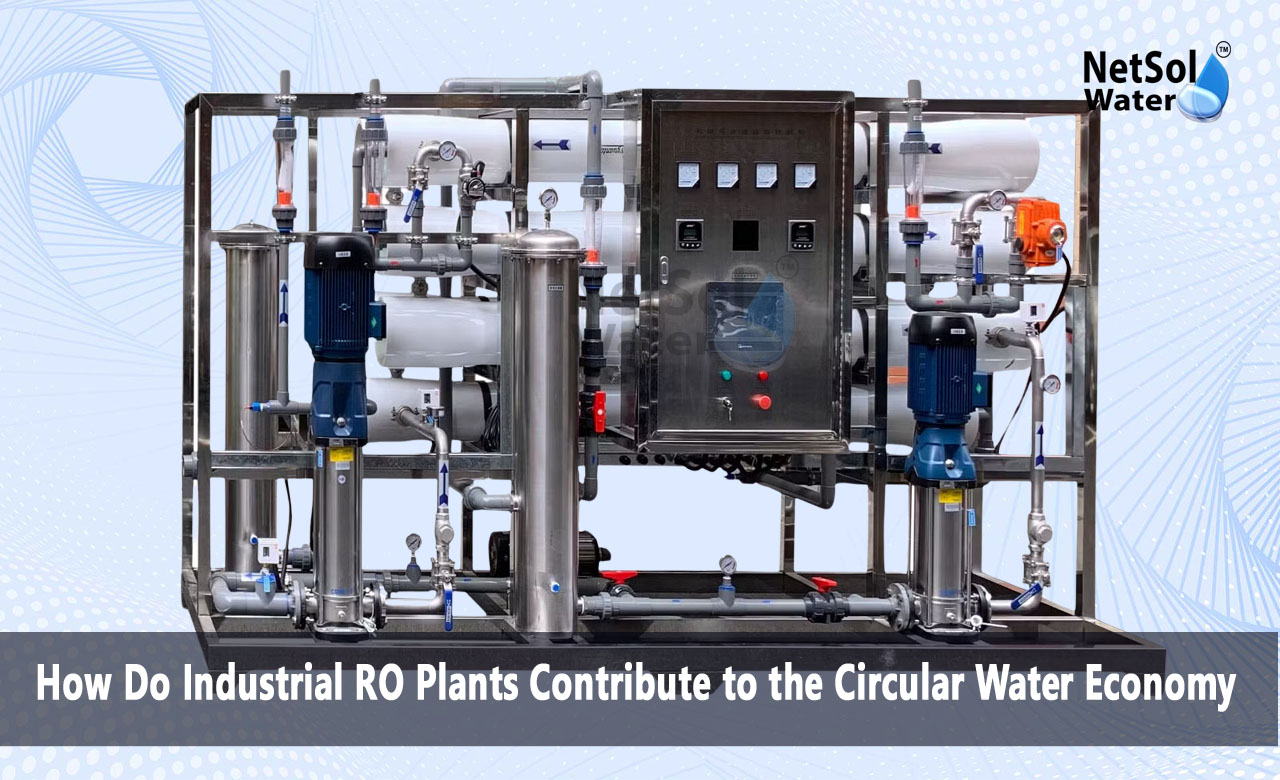How Do Industrial RO Plants Contribute to the Circular Water Economy?
Water scarcity is one of the largest issues for industries all around the world. Traditional systems dependent on freshwater are not capable anymore. When water stress begins to prevail, industries are turning towards new means of recycling and reuse of water and reducing their dependence on natural water supply. Industrial RO plants offer that solution. The Industrial RO plants contribute to the circular water economy through reuse of water, efficiency enhancement, and minimizing damage to the environment.
We are going to understand what the circular water economy is and how the RO plants are an integral component in ensuring it is successful.
What is Circular Water Economy?
The circle's water economy is a concept in which water is recycled, reused, and considered a renewable resource rather than something to be used and flushed. Closed loops are promoted, in which wastewater is not waste but a resource. In such a system, industries try to harvest as much value from water before it goes down the drain — preferably, minimal or no going down the drain is practiced.
Unlike the traditional linear process of "use and dispose," the circular process is focused on long-term sustainability. Industrial RO plants contribute to the circular water economy by being at the vanguard of this evolution — enabling industries to purify wastewater to high standard and recycle it internally.
How Do Industrial RO Plants Contribute to the Circular Water Economy?
Recycling of water in industries
The major contribution of RO plants includes water recycling. Industrially, a huge volume of wastewater is generated by sectors like textiles, pharmaceuticals, food processing, and chemical manufacturing. The wastewater can be treated by RO plants and made reusable for purposes like cleaning, cooling, boiler feed, etc.
This recycling onsite significantly reduces the requirement for freshwater. While Industrial RO plants contribute to the circular water economy, they allow industries to create independent water systems that reduce water charges and support long-term operations even in water-stressed areas.
Reducing Discharge to the Environment
In case untreated or partially treated water is released to rivers, lakes, or land, it contaminates and harms the ecosystem. RO technology ensures that treated water is of good quality and, in most cases, becomes reusable.
This helps industries minimize their ecological footprint. Reduced discharges mean reduced impact on local water bodies and communities. Industrial RO plants contribute to the circular water economy in this way by saving water and improving environmental responsibility.
Recovery of Valuable Materials
In some industries, wastewater contains dissolved salts, metals, and chemicals. Some of them can be separated and recovered using advanced RO plants. For example, in metal-finishing industries, there are a few recovery systems that allow recovery of valuable metals like nickel or copper from wastewater.
By recycling these materials, industries not only reduce pollution but also save raw material costs. Recycling is a key part of the circular approach where waste is turned into a resource.
Facilitating Zero Liquid Discharge (ZLD)
Zero Liquid Discharge is a state-of-the-art water management practice where all wastewater is treated and reused with no discharge remaining. Many industries nowadays are looking to attain ZLD in order to meet the environmental needs and reach sustainability.
RO plants are the central part of most ZLD systems. They reduce the wastewater and extract reusable water from it. The rest of the residue can be treated by other systems like evaporators or crystallizers.
Encouraging Sustainable Water Practices
Apart from their technical function, industrial RO plants also cause industries to rethink their water usage. After installing the ROplants, industries also begin to monitor the quality of water, make optimal use, and reduce wastage and leaks.
This mindset shift is crucial. Sustainability is not so much about installing new technology but also about altering the way in which resources are managed. Through treatment, reuse, and awareness, Industrial RO plants contribute to the circular water economy practically and culturally.
Conclusion
Today, efficient water management is not an option but a necessity. Amid the increasing consciousness of water scarcity and environmental deterioration, industries have no other choice but to employ sustainable solutions. The circular water economy offers a smart and ethical route.
In this direction, RO plants play a major role. Whether by recycling process water, reducing discharge, recovering valuable material, or allowing ZLD, the Industrial RO plants contribute to the circular water economy in many impactful ways. The industries can ensure long-term success while saving our planet's most treasured asset — water — by implementing these solutions.
Do you need an advice or assistance on selecting the best water and waste water treatment unit? We have solutions for all your problems!
Let us know your problem, our experts will make sure that it goes away.
For an assistance or related query,
Call on +91-9650608473 Or write us at enquiry@netsolwater.com



